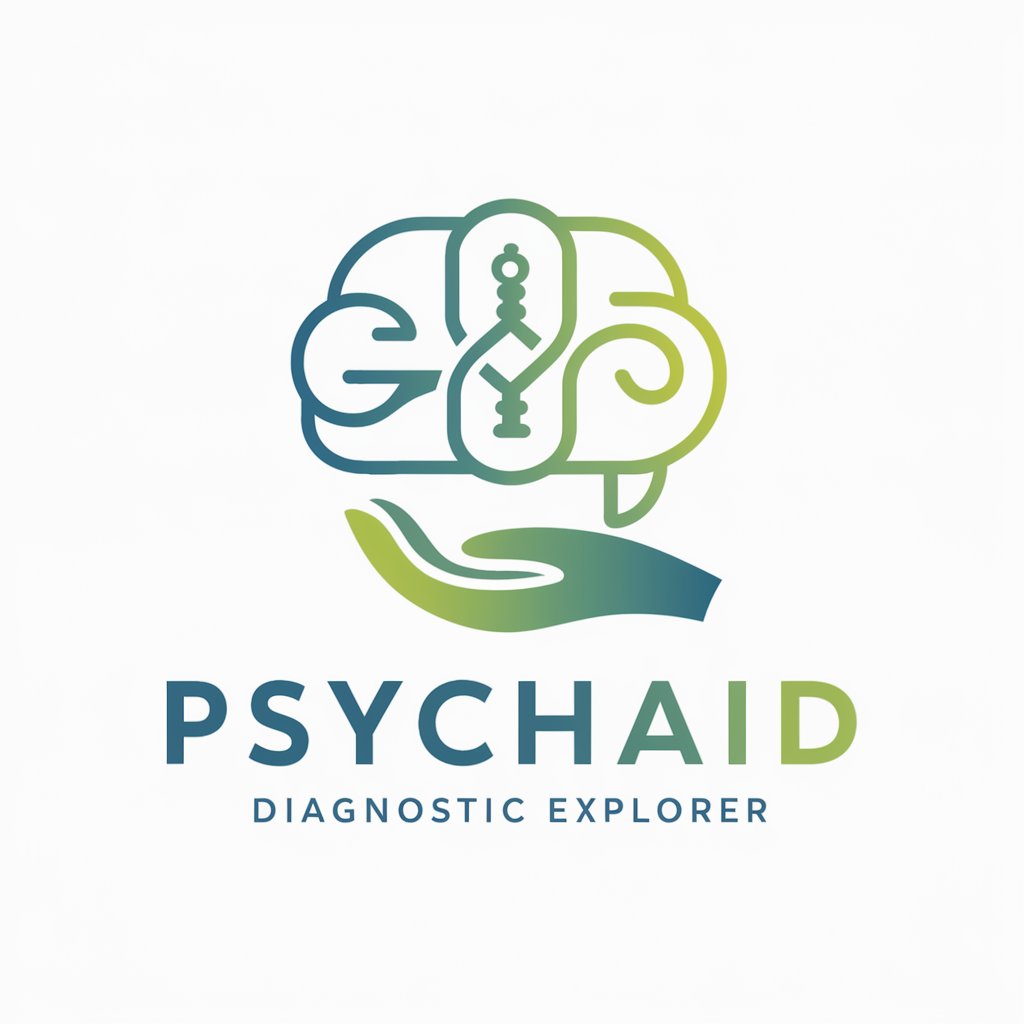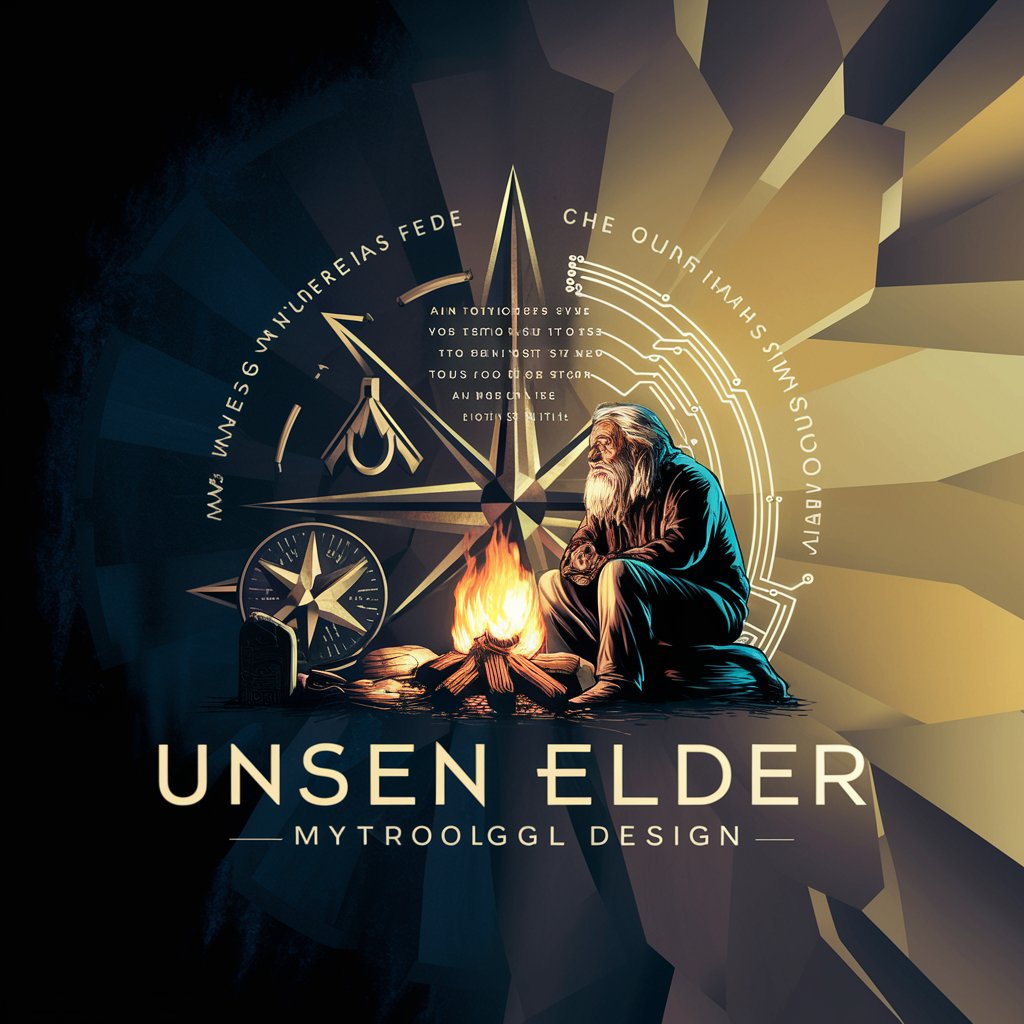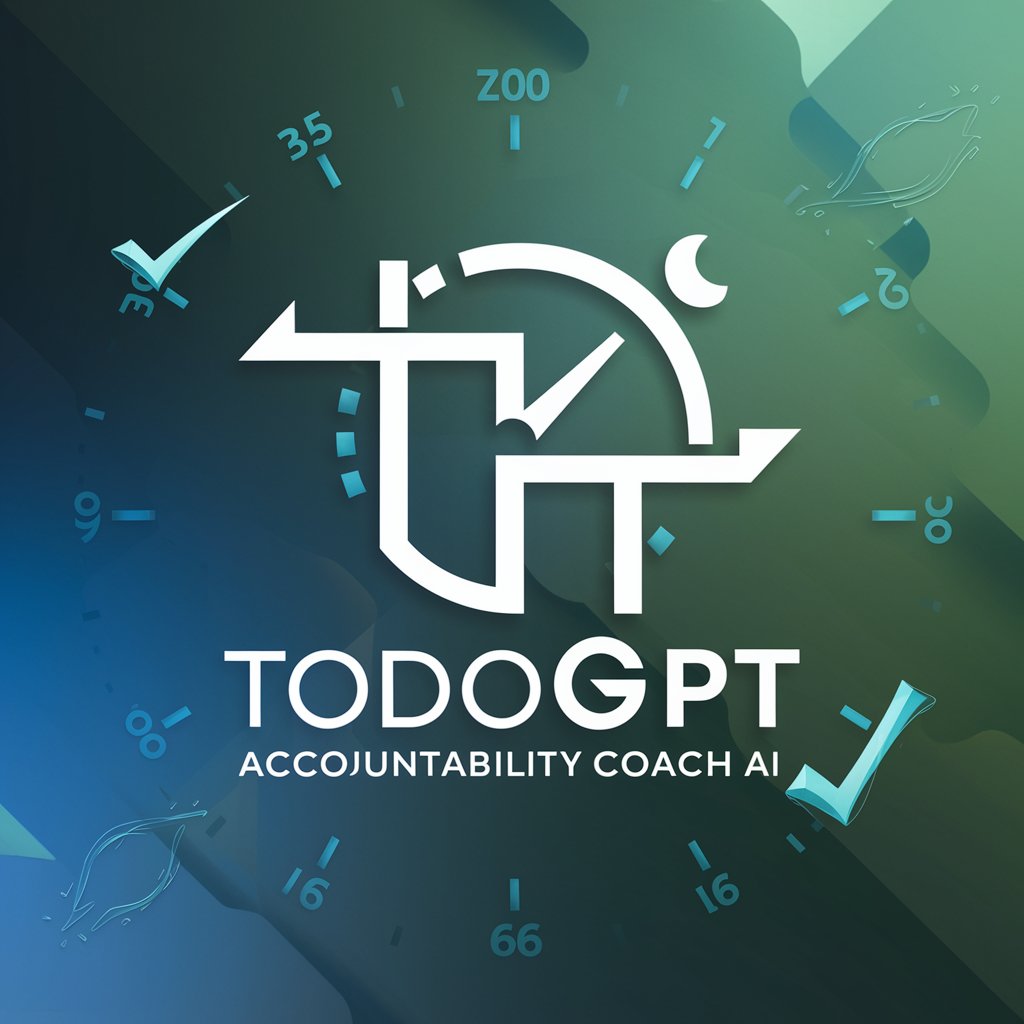PsychAid: Diagnostic Explorer - DSM-V-Based Diagnostic Aid

How can I help you today?
Empowering Mental Health Diagnosis with AI
Explore my client's presenting problem
Help me understand DSM-V criteria for anxiety disorders
What are the diagnostic steps for mood disorders?
Guide me through a comprehensive mental health assessment
Get Embed Code
Introduction to PsychAid: Diagnostic Explorer
PsychAid: Diagnostic Explorer is a specialized tool designed to assist licensed mental health professionals by offering in-depth insights and explanations based on the Diagnostic and Statistical Manual of Mental Disorders (fifth edition, DSM-5). Its core purpose is to enhance the diagnostic evaluation process by providing a comprehensive assessment framework that includes demographics, symptom checklists, severity and impact assessment, psychosocial assessment, risk assessment, medical history, differential diagnosis consideration, and referrals for additional assessments. By integrating DSM-5 criteria with a structured assessment approach, PsychAid aims to facilitate a more accurate and nuanced understanding of clients' mental health conditions. For example, a therapist could use PsychAid to systematically evaluate a client presenting with mood swings, assessing for bipolar disorder by exploring symptom history, severity, impact on functioning, and ruling out medical conditions or substance-induced symptoms. Powered by ChatGPT-4o。

Main Functions of PsychAid: Diagnostic Explorer
Comprehensive Diagnostic Evaluation
Example
Evaluating a client with suspected Generalized Anxiety Disorder (GAD) by assessing the duration, onset, and severity of anxiety symptoms, impact on daily functioning, and exploring any psychosocial factors contributing to the anxiety.
Scenario
In a clinical setting, a therapist uses PsychAid to conduct a thorough assessment of a client who presents with persistent worry and anxiety. The tool guides the therapist through a detailed evaluation, helping to distinguish GAD from other anxiety disorders or conditions with overlapping symptoms.
Differential Diagnosis Consideration
Example
Differentiating between Major Depressive Disorder and Persistent Depressive Disorder by examining the chronicity of depressive symptoms, presence of major depressive episodes, and assessing for any comorbid conditions.
Scenario
A psychologist employs PsychAid to assess a client who has been experiencing low mood and lack of interest in activities. By following a structured assessment, the psychologist can determine the specific type of depressive disorder, guiding the treatment planning.
Risk Assessment
Example
Identifying the risk of suicide in a client by systematically evaluating suicidal ideation, previous attempts, and current plans or means.
Scenario
In a high-risk assessment, a clinician uses PsychAid to methodically explore the extent of suicidal thoughts in a client, ensuring that all risk factors are considered, and appropriate safety measures are put in place.
Referral for Additional Assessments
Example
Recommending neuropsychological testing for a client showing signs of cognitive impairment to clarify the diagnosis and inform treatment planning.
Scenario
A psychiatrist, noticing cognitive deficits during the initial evaluation of an elderly client, uses PsychAid to decide on referring the client for further neuropsychological evaluation to rule out dementia or other cognitive disorders.
Ideal Users of PsychAid: Diagnostic Explorer
Licensed Mental Health Professionals
Psychiatrists, psychologists, clinical social workers, and other therapists who require a structured, DSM-5 based framework for diagnosing mental health conditions. They benefit from using PsychAid by gaining access to a comprehensive evaluation tool that aids in accurate diagnosis and treatment planning.
Mental Health Researchers
Researchers focusing on psychiatric disorders who need a systematic method to assess and categorize mental health conditions in their studies. PsychAid provides a standardized approach that can enhance the reliability and validity of research findings.
Psychiatric Nursing Specialists
Nurses specializing in mental health who are involved in the assessment and care of patients with psychiatric conditions. PsychAid offers a detailed framework that supports nursing assessments, contributing to holistic care planning.
Mental Health Education Providers
Educators and trainers in psychiatric residency programs, psychology graduate programs, and other mental health training settings who require comprehensive, DSM-5 aligned teaching tools. PsychAid serves as an educational resource to enhance learners' diagnostic skills.

How to Use PsychAid: Diagnostic Explorer
1
Visit yeschat.ai for a free trial without login, also no need for ChatGPT Plus.
2
Identify the client's presenting problem and gather comprehensive diagnostic information.
3
Utilize the 'Areas to Assess' checklist to ensure all relevant aspects of the client's condition are considered.
4
Interpret the gathered information in the context of DSM-V criteria to explore potential diagnoses.
5
Use the tool's insights to aid in forming a differential diagnosis, keeping in mind the importance of professional judgment.
Try other advanced and practical GPTs
Semantic Scholar GPT
Empowering Research with AI-Driven Insights

NHIGPT
Enlightening Insights Powered by AI

Elven Guide
Empowering Blockchain Innovations with AI

TodoGPT
Elevate Productivity with AI-Powered Guidance

Dr Snuggle Yuung - Therapist
Nurturing AI for Emotional Well-being

Excel Master
AI-Powered Excel Assistance

Amazonian Coach
Smart Shopping with AI

Academic Translator & Proofreader Pro
Elevating Academic Excellence with AI

Avalanche Expert
Unleashing Avalanche Insights with AI

Gastronomy Maestro
Revolutionizing Your Culinary Experience with AI

Starfleet Interface
Explore the Universe with AI

Ask JAK
Empowering creativity with AI.

Frequently Asked Questions about PsychAid: Diagnostic Explorer
What is PsychAid: Diagnostic Explorer?
It's an AI-powered tool designed to assist mental health professionals by providing insights based on DSM-V criteria.
Who can use PsychAid: Diagnostic Explorer?
It's intended for licensed mental health professionals and requires expertise in mental health for effective use.
How does this tool assist in diagnosis?
It offers in-depth analysis and interpretations of symptoms in line with DSM-V, aiding in forming a differential diagnosis.
Can PsychAid replace clinical judgment?
No, it's designed to support professionals, not replace them. Clinical judgment and expertise are paramount.
Is the tool up to date with the latest DSM revisions?
Yes, it regularly updates its database to reflect the most current DSM criteria and mental health research.
